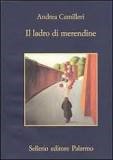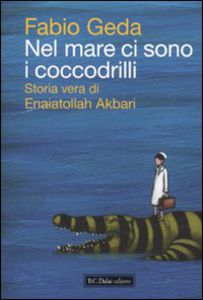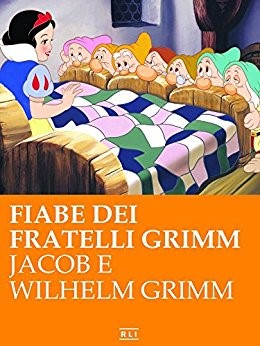
This project promotes open access materials and has been funded with support from the European Commission - Erasmus+ program. These materials reflect the views only of the author, and the Commission cannot be held responsible for any use which may be made of the information contained therein.
[Project Number: 2016-1-HR01-KA201-022159]
![]()
Title of Activity
Making a list of Rsp readers' and bookworms' rights
Description of educational activity
Duration: 2 hours
Pupils’ age: 15-16
Organization of the class of pupils: group work
Pupils' tasks: Devising a test, while expressing personal ideas: students will have to motivate, compare and discuss their different opinions.
Support materials: Daniel Pennac's book "Like a novel" includes a list of readers' rights and students will have to choose some passages from articles.
Evaluation and assessment method: This activity will be assessed by students following moments of guided discussions. Pupils are usually involved in such activities because they are encouraged to speak about their interests. Moreover, they can also see the topic from different perspectives.
Effect of the activity on RSP reading: Exchanging ideas and cooperating can be linked to an interest in what is the main objective of the activity (That is reading), therefore promoting behaviours/ attitudes that may lead RSP readers to gradually become bookworms
Connection to curriculum
Grade: 3rd year
Related objectives: Students start studying literature in this year. Accordingly, they begin reading different types of texts, so working out individual strengths and weaknesses does help learning more effectively.
Knowledge:
- Enhancing a positive approach to reading, reordering and processing information
Skills:
- Working in groups, comparing and respecting different ideas
Competences:
- supporting and putting forward a personal opinion
- following specific instructions
Bibliographic reference to be used during the activity
Andrea Camilleri,
Il ladro di merendine, collana La memoria,
Sellerio, 2000,
pp. 247, cap. 20
ISBN 88-389-1319-6.

Results
Exchanging ideas, asking questions, sharing impressions, while motivating and developing opinions
Recommendations
Placing emphasis on the difficulties RSP readers may encounter when reading a text, may also help them overcome their hindrance. Moreover, teachers can monitor students' progress and achievements, thus contributing to creating a positive environment of cooperative learning.
Title of Activity
On a journey … but not on holiday.
Description of educational activity
Duration: 4 lessons (6 hours)
Pupils’ age: 15-16
Organization of the class of pupils: individual, pair and group work
The aim of the lesson: the aim of this activity is to get a deep insight into the human experience of being an exile from an emotional, "physical" and literary perspective. The students will have the opportunity to share the main character's long and perilous journey and will get a closer view of his world, his geographical reality, his inner journey, while partaking his discovery of different realities, worlds, attitudes and behaviours.
After all, the theme of migration has increasingly inspired the world literature, while placing more emphasis on autobiographical experiences reported by very young writers and providing stimuli and means to learn that each of us can be considered an "outsider" depending on the situation.
Support materials:
- Book, Atlas, Maps
- Encyclopaedias
- Internet sites
- Films
- Six worksheets on reading /reflection activities in order to carry out in-depth tasks on six themes related to the six chapters
- Books written by other authors on the same theme
Activities:
First of all, students are expected to read the book
- The students are divided into six groups.
- Each group is assigned one of the chapters regarding one the countries the main character had to go through (Afghanistan, Pakistan…)
- The students carry out research on places, borders, distances, customs, possible literary links to other witnesses … of the countries they were assigned. They will choose meaningful and specific images to “trace” the journey experienced by the main character in a very realistic way
- Students will also do in-depth/follow-up exercises included in the worksheets
- the members of each group will present their research/work, while summing up the main events regarding the assigned countries and providing more details on people and realities. Then, it will be the turn of another group to deal with the following country according to the chronological order of the events.
- Students will publish their final output on the project Facebook page
Great importance will be given to debriefing: a moment devoted to reflection, reassembling and analysis of the activity, thus promoting the collective exchange of opinions, the detection of difficult problems and, finally, the results of the learning process.
Evaluation and assessment method:
In order to evaluate the activity, students are asked:
- to orally present their works
- to draw a map of the protagonist's journey in no more than 10 minutes where they mark and colour countries, borders (confine), towns and journey.
Effect of the activity on RSP reading:
Students will be aware of today's burning issues such as prejudices, racism, conflicts, minors' rights, motherhood, borders closing,..., while learning about people's welcoming attitudes and generosity. It may be the starting point for bridging cultural gaps between European and non-European countries.
Connection to curriculum
Grade: 2nd grade
Scientific curriculum: during the second year the study of literature is focused on
- Improving oral and written skills and competences.
- Improving reading skills, understanding and analysing , specifically, literary texts, but also devoting attention to non-literary texts and non-verbal languages.
- Learning how to build up and understand the historical and cultural context regarding the texts
Knowledge:
- Singling out the context, the aim and the addressee of the communication
- Learning the different reading techniques
- Develop reading fluency
- Improve reading comprehension
Skills:
- Access and organize and use information
- Express ideas and Justify arguments
- Select appropriate media
- Analyze complex systems
- Reflect on learning
- Draw conclusions
- Ask clarifying questions
- Presentation before an audience
- Improved use of vocabulary, spelling, syntax and expression
Bibliographic reference to be used during the activity
Italian version
Fabio Geda
Nel mare ci sono i coccodrilli. Storia vera di Enaiatollah Akbari
Publisher: Dalani
ISBN: 9788860736475
Page count: 155
Year of issue: 2010

English version
Hardcover, 215 pages
Published August 9th 2011 by Doubleday (first published 2010)
Original Title: Nel mare ci sono i coccodrilli. Storia vera di Enaiatollah Akbari
ISBN: 0385534736 (ISBN13: 9780385534734)
Edition Language: English

Literary Awards: Marsh Award for Children's Literature in Translation (2013), John Florio Prize Nominee for Howard Curtis (2012)
Digital sources
Meet the authors at bookshops and booktrailers:
- https://www.youtube.com/watch?v=Qvk13yu4mik
- https://www.youtube.com/watch?v=3ZOSoIsr6Qs
- https://www.youtube.com/watch?v=BLsZbSaWbOw
Results
The students are expected to :
- be fully involved in the main character's experiences, from an emotional and intellectual point of view
- eagerly learn new tips about different cultures as well as about those geographical areas which have become migration routes in the last few years
- get a deeper knowledge about the difficulties encountered by those migrants who haven't come of age yet
- connect information and data, do research, become aware of problems related to migration, work in groups.
Recommendations
Creating “environments” promoting learning (scaffolding) and working in groups (cooperative learning) are to be prioritised in order to:
- foster students' activities and knowledge;
- favour research and investigation;
- promote collaborative learning and students' sharing;
- enhance the students' individual learning process;
- devising teaching units as workshops
- properly inform students about diversity
Book title
In the sea there are crocodiles
Author
Fabio Geda

Bibliographic information
Published in Italy in 2010 for Baldini&Castoldi
Links (adaptations, reviews, full texts etc.)
Complete novel: http://www.youblisher.com/p/1299525-Nel-mare-ci-sono-i-coccodrilli/
Theme
The experiences lived by a young asylum-seeker in his journey from Afghanistan to Italy
Short summary
The Italian writer Fabio Geda tells the true story of an Afghani boy, named Enaiatollah Akbari, and his journey from Afghanistan to Italy in the early 21st century. Enaiatollah is only 10 years old when he is left to fend for himself because his mother abandons him in Pakistan, – her way of saving him from Taliban rule. (His family belongs to the Hazara people, a minority persecuted by the Talibans). So begins Enaiatollah’s long struggle to find a new home, security and education. The map in the book shows the route of his journey – through Iran, Turkey and Greece before finding a safe haven in Italy – and the text tells about the setbacks, cruelty and also kindness he encounters. His adventurous and perilous escape includes hiding in the false bottom of a lorry, dangerous border crossings and encounters with traffickers: it is a frank and revealing testament of the experiences of a young asylum- seeker today.
Why is the story appropriate for the targeted groups of RSP readers?
This story reflects the current political/historical moment and refers to today's migrant situation. It makes students reflect upon the principle of inclusion and, at the same time, it promotes understanding of cultural diversities and heritage.
What are the distinguished readers interests reflected by this book/story?
This novel reflects the students' interests because it deals with the true biography of a teen-ager who, despite his tender age, has to cope with dramatic situations: in order to enjoy freedom he escapes from his country and sets out on a perilous journey, while going through terrible experiences.
Why is this story motivational for the pupils?
This book is about a real story of an asylum-keeper, so it deals with the current issue of migration, but it also concerns hospitality. The main character's experience makes readers reflect upon the theme, move to tears while providing tips for discussion and exchange about several important topics: violence, war, despair, freedom sorrow, exile, religion. Above all, it gives the students the opportunity to consider the migration phenomenon more carefully and caringly.
Is there a historical, political, multi/inter cultural, migrant or similar context recognized in this book/story?
Yes, it reflects the current political/historical moment in Pakistan and Afghanistan (Taliban, war, persecution af Hazara minority …) and refers to today's migrant situation.
Is there a principle of inclusion reflected in this book/story and does it promotes understanding of cultural diversities and heritage?
Yes, in this book readers can find the principle of inclusion (the boy will be adopted and will meet many caring people) and the understanding of cultural diversities and heritage
Title of Activity
Reading for fun
Description of educational activity
Duration: 2 hours
Pupils’ age: 15-16
Organization of the class of pupils: group work
Pupils' tasks: studying the texts thoroughly in order to be able to answer questions on them.
Support materials:
- Italian TV programme "Per un pugno di libri" on which this activity is based.
Evaluation and assessment method: This work will be assessed by teachers through questions similar to those asked in the TV programme. This game-activity greatly appealed to students because they carefully read the fairy tale and learnt about its authors and literary genre in order to win the contest. They really had fun and highly appreciated reading as it was experienced as something funny and rewarding.
Effect of the activity on RSP reading: having fun while reading, exchanging information contribute to considering reading no longer as a boring and lonely activity, but pleasant and sociable.
Connection to curriculum
Grade: 3rd year
Related objectives: text analysis always starts in the 3rd year and is suggested in this activity since it helps "dismantle" the text in order to better understand it.
Knowledge: learning to read fluently, organise information in an appropriate way.
Skills: work in groups, sum up and single out the main information in a text.
Competences: analyse a text and make links.
Bibliographic reference to be used during the activity
Italian version
Fratelli Grimm
Fiabe, ed. Mondadori,2016
pp.663
ISBN978-8804-67205-0

Digital sources
There are countless simplified versions of Brothers Grimm's tales. Students have seen the latest filmed version of the Beauty and the Beast ; moreover there's a highly appreciated Tv series entitled "Grimm" broadcast by Netflix, where there are a lot of references to Brothers Grimm's fairy tales, including "Hansel and Gretel".
Results
Making appropriate links between different topics, considering, reflecting and learning how to ask oneself questions and find answers
Recommendations
This game helps increase students' interest in reading, since it arouses their curiosity; moreover, while having fun, the teacher can also get immediate feedback of students' knowledge.
Contact
X gimnazija ''Ivan Supek''
Ul. Vjekoslava Klaića 7
10000
Zagreb
E-mail: partners@handbook4rspreaders.org










